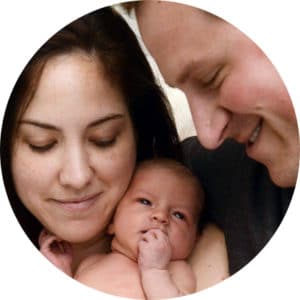Postpartum depression (PPD) creates feelings of anxiety and depression. PPD also hinders a mother’s ability to care for her child after birth. Understanding the symptoms of postpartum depression can help you determine whether you need to seek medical or social support.

What is Postpartum Depression?
Postpartum depression (PPD) is a severe mood disorder that causes mothers to have feelings of intense sadness, worry, exhaustion, worthlessness, and even anger after their new baby is born. Sometimes confused with “baby blues,” postpartum depression affects almost 15% of women after childbirth.
About Postpartum Depression (PPD)
Support for Family Members and Friends
It can be extremely difficult to watch someone struggle with postpartum depression. You may feel shocked, confused, or helpless. These are natural reactions when the mental and emotional well-being of your loved one is at stake. Learn how you can help your loved one and get the support you need.
Treatment and Recovery
Postpartum depression treatments generally include a combination of therapy with a psychiatrist or psychologist and prescription medications such as antidepressants. Learn about available treatment options and long-term recovery.
Why We Created PostpartumDepression.org
PostpartumDepression.org was founded and inspired by Chris and Jenna Carberg. In just two short days following the birth of their daughter Elsie, Chris began to see changes in his wife’s mood and behavior. Following a serious postpartum depression diagnosis, the couple has made it their mission to encourage women and educate families.
All website content has been reviewed by Dr. Kimberly Langdon, and we regularly make updates to provide the newest information about postpartum depression, anxiety, panic, and psychosis.
Postpartum Depression Quiz
There are ways to help predict whether or not you are at risk of developing postpartum depression. Postpartum depression and its many types are serious conditions. It is important to recognize signs, symptoms and risk factors as soon as possible.
Take Our Quiz Now
Quote from Gwyneth Paltrow, Actress“When my son, Moses, came into the world in 2006, I expected to have another period of euphoria following his birth. Instead, I was confronted with one of the darkest and most painfully debilitating chapters of my life.”







